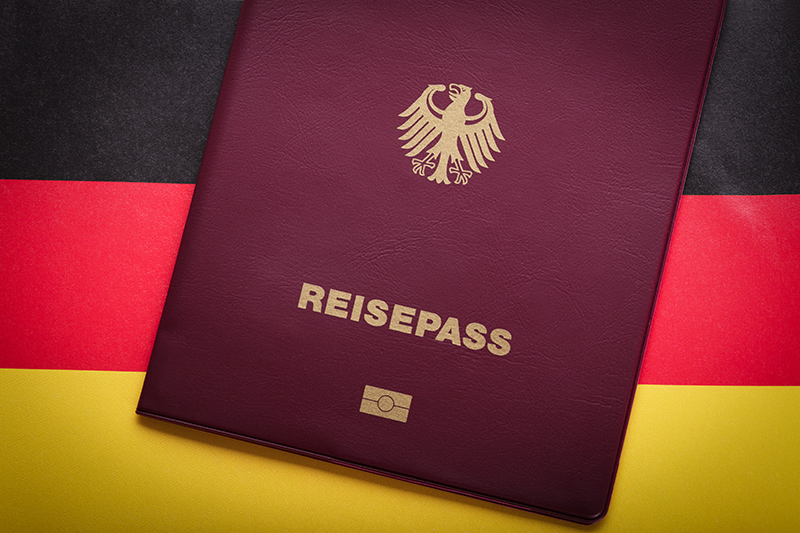Alaska Airlines Uniform Policy is Likely Discriminatory
Washington State's Commission on Human Rights finds rigid, gender-specific dress codes harm employees who do not conform to gender norms.

The Washington State Commission on Human Rights has ruled that Alaska Airlines’ gendered uniform policy may be discriminatory. The finding may set up the possibility of a future lawsuit.
On August 31, the commission issued a reasonable cause finding of discrimination against Alaska Airlines over the company’s enforcement of a uniform policy requiring flight attendants to conform to gender-specific dress code and grooming standards.
Under the code, flight attendants must wear either a “masculine” or “feminine” uniform, which, in turn, dictates whether employees may wear dresses or skirts, what type of pants or cardigans they may wear, what color shoes they may wear, and whether they wear ties or neck scarves.
The grooming standards adopted by the airline also dictate whether employees may wear lipstick or grow facial hair, how many earrings they can wear, whether they can wear makeup or concealer, and whether they may roll up their sleeves.
The controversy over the dress code stems from a complaint filed by Justin Wetherell, a Seattle-based nonbinary flight attendant and flight attendant instructor for Alaska Airlines, who alleged that the uniform policy forces them to conform to gender-specific standards that don’t match their true gender identity, leading them to be frequently misgendered at work.
The American Civil Liberties Union and the ACLU of Washington sent a letter to Alaska Airlines on Wetherell’s behalf in June 2021, arguing that the company’s binary uniform policy violates Washington State law, which explicitly prohibits discrimination based on gender identity, appearance, behavior, and expression, and likely violates state and federal prohibitions on sex-based discrimination as well.
In response, Alaska Airlines said it has been a “longtime supporter of the LGBTQ+ community” and a “leader in the industry” when it comes to uniform and grooming standards.”
The ACLU pushed back against the airline’s defense, arguing that the dress code policy reinforces “archaic and harmful gender stereotypes” that affect anyone, regardless of gender identity, who does not conform to the airline’s “preferred image of either male or female.”
The ACLU filed a complaint with the Washington State Commission on Human Rights, which ultimately determined, based on the “preponderance of evidence,” that there was sufficient proof to find that the company had discriminated against Wetherell when it forced them to abide by the male dress code and grooming standards.
According to the commission’s findings, the rigid uniform policy violates state law, which bars employers from “requiring an individual to dress or groom in a manner that is not consistent with that individual’s gender expression or gender identity.”
In March, Alaksa Airlines announced updates to its uniform policy, which relaxes restrictions on fingernail polish, tattoos, and piercings, and rebranded its “male” and “female” uniform kits as “masculine” and “feminine” kits inclusive of all gender identities, reports The Hill.
But the policy still has some exceptions, preventing flight attendants with facial hair, like Wetherell, from wearing pieces from the “feminine” kit.
Wetherell argued that, regardless of the changes, the policy remains discriminatory because it relegates them to using the “masculine” kit despite being nonbinary — a finding upheld by the Commission on Human Rights.
“The illegal and discriminatory uniform policy maintained by Alaska Airlines forces employees like me to dress and groom in a manner inconsistent with our gender identities and gender expressions,” Wetherell said in a statement following the commission’s reasonable cause finding. “There is no reason for the airline to continue to enforce this illegal policy, other than to maintain an outdated and discriminatory ideal of gender.”
“The uniform policy places a particularly heavy burden on nonbinary employees, but the uniform’s policy also harms any flight attendant who does not fit Alaska Airlines’ preferred image of either male or female,” Joshua Block, a senior staff attorney with the ACLU’s LGBTQ & HIV Project, said in a statement. “By forcing our client and countless other employees to adhere to Alaska Airlines’ rigid gender categories, the uniform policy demeans employees who do not conform to gender stereotypes and interferes with their ability to do their jobs.”
Support Metro Weekly’s Journalism
These are challenging times for news organizations. And yet it’s crucial we stay active and provide vital resources and information to both our local readers and the world. So won’t you please take a moment and consider supporting Metro Weekly with a membership? For as little as $5 a month, you can help ensure Metro Weekly magazine and MetroWeekly.com remain free, viable resources as we provide the best, most diverse, culturally-resonant LGBTQ coverage in both the D.C. region and around the world. Memberships come with exclusive perks and discounts, your own personal digital delivery of each week’s magazine (and an archive), access to our Member's Lounge when it launches this fall, and exclusive members-only items like Metro Weekly Membership Mugs and Tote Bags! Check out all our membership levels here and please join us today!

























You must be logged in to post a comment.